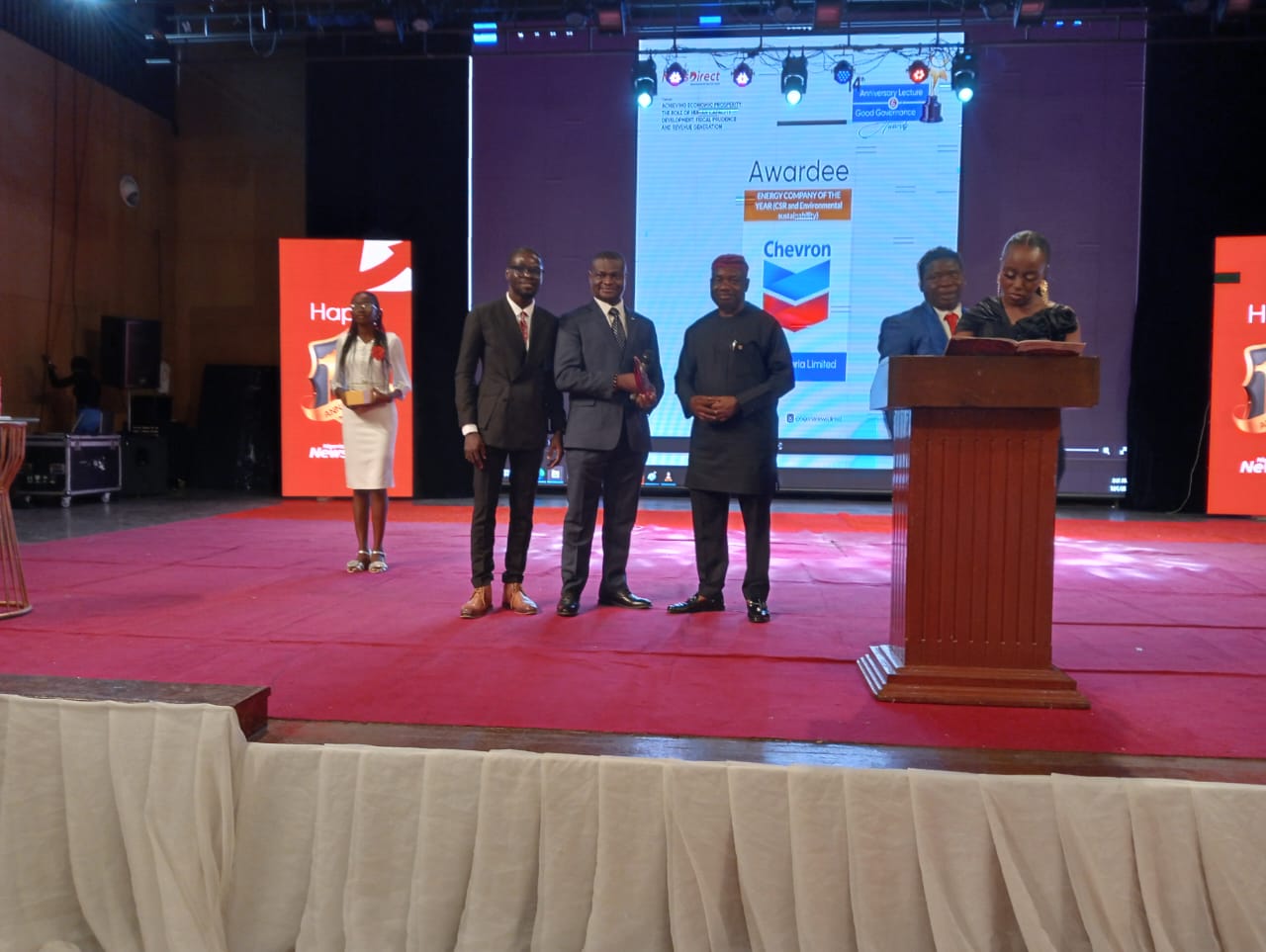Energy
Nigeria to achieve Carbon- Neutrality by 2025
By Joseph BAMIDELE
LONDON: Nigeria’s Minister of Petroleum Resources, Mrs. Diezani Alison-Madueke has appealed to the Global Community and the developed World to invest in the development of the burgeoning African energy economy so as to ensure a win-win scenario for the continent and the rest of the globe.
Speaking at a Special lecture titled: The Future of African Energy in a Changing World, delivered at St. Anthony’s College, University of Oxford, United Kingdom, over the weekend, the Minister stated that unlike in the past when Africa was a ready example of a pitiable basket case, the continent has emerged a potent destination for investments in oil and gas.
 Celebrating the rising profile of African energy in the global energy matrix, Mrs. Alison-Madueke stated that the recent flurry of offshore and onshore oil and gas discoveries across the continent has placed Africa on the front burner of the global energy map.
Celebrating the rising profile of African energy in the global energy matrix, Mrs. Alison-Madueke stated that the recent flurry of offshore and onshore oil and gas discoveries across the continent has placed Africa on the front burner of the global energy map.
The Petroleum Minister argued that while it may make economic and geo-strategic sense for a nation to meet its energy needs from domestic sources instead of imports, it may not make so much sense from the perspective of the broad-based global development necessary to ensure the global stability.
“We believe that global stability comes from the balancing of regional interests.
To achieve optimal development for the African energy sector, the support and partnership of the industrialized world is critical. This would not only be in the interest of Africa, but also in the enlightened self-interest of the global community as a whole. We see a win-win outcome when industrialized nations source their energy needs from African nations.’’
She added that this would enable the wealthy nations satisfy their energy needs while at the same time generating for Africa, the vital export revenue that will make the continent less dependent on foreign developmental aid.
“ Investing in Africa’s growth opportunities is undeniably a much better model for providing long-term solutions to Africa’s developmental challenges than the grant of charitable aid,’’ She said.
Establishing a strong correlation between Africa’s development and drive to attaining global security, the Minister noted that the economic stability of Africa is a key factor in global security.
She argued that when Africa is ravaged by socio-economic instability, the rest of the world is less safe stating that no nation of the world, no matter how far away from Africa, is genuinely at peace with itself because the reality of our globalized world is that no nation is too far way to be impacted by upheavals in other regions of the world.
The Minister emphasized that the more Africa’s economy develops and African States earn export revenue that will lift their people from poverty, disease, illiteracy and other socio-economic depredations that have held Africa back, the less likely that Africa will provide the breeding ground for terrorism and other forms of violent civil unrest.
The Minister listed the investment opportunities on offer in the continent to include: upstream drilling and related services, pipeline engineering and construction, engineering and construction of oil and gas processing facilities,logistics and related support services, technical training and general human resources development, gas utilization for value added purposes such as fertilizer, power generation, petrochemicals to mention but a few.
“The world must have learned by now that Africa’s issues cannot be treated as side issues but must be placed front and centre in dialogue about the future of our planet. African energy has a role to play in the global energy market, but it can only play that role if the global community empowers it to play it,’’ she said.
On the threat posed to the Africa Energy market with the embrace of shale oil and gas by the US and China, Mrs. Alison-Madueke described the threat as potent and called on the Continent to rise up to the challenge.
Commenting on gas flaring and environmental pollution, the Minister stated that the country has begun the implementation of mitigation strategies that will over time compensate for years of carbon emissions adding that Nigeria aspires to achieve carbon neutrality by 2025 at the latest.
This aspiration is already being realized with gas flares now at a significantly reduced level relative to previous levels. By 2010 it was down to 30 percent and now it’s down to 11 percent and would be down to two percent by 2020 and beyond, ’’ she enthused.
Energy
Dangote Partnership: MRS Urges Nigerians To Insist On N935/Litre Petrol Price Nationwide

MRS Oil Nigeria Plc, a prominent player in the Nigerian downstream oil industry, has implemented a new petrol price of N935 per litre across all its retail service stations nationwide.
The company has also called on Nigerians to monitor and report any outlets that fail to adhere to the new price structure.
Biztellers reports that this is consequent upon an announcement by the President of Dangote Industries Limited, Aliko Dangote, that the Dangote Petroleum Refinery has partnered with MRS Oil and Gas to offer petrol at N935 per litre at retail outlets, following a reduction in the ex-depot price from N970 to N899.50 per litre.
ALSO READ: Dangote Slashes PMS Price To N899.50k
It was gathered that MRS Oil Nigeria Plc has instructed all its outlets to implement the new price immediately, setting up a digital platform and monitoring team to ensure full compliance.
In a statement on Monday night, the company declared, “Petrol is now being sold at N935 at MRS Filling Stations nationwide. If you find any station not following this price, please report it. Call 08009447853 or email: NG-FMKPMGWHISTLEBLOWING@NG.KPMG.COM”
Emphasising the eco-friendly nature of its products, MRS Oil added, “We call on all petrol station owners to join MRS Oil Nigeria Plc in improving the supply chain of our beloved country, ensuring product quality and availability in every corner of Nigeria for the benefit of all Nigerians.”
In Lagos, commuters were seen queuing at MRS filling stations to purchase petrol, with many expressing their gratitude to the Dangote Petroleum Refinery and MRS Oil and Gas, urging other marketers to support the indigenous refinery rather than import off-spec products into the country.
A commuter at the MRS station at Alapere on the Lagos Ibadan Express way, Ibukun Phillips, could not hide her joy as her husband filled up their car.
“I am very happy today. This is a victory for Nigeria,” she said. “The price reduction is the best gift of the season. But beyond just the reduction, we are buying standard, eco-friendly petrol at a lower rate. My husband and I have decided we will only be using MRS from now on because we are confident in the quality of the product and supporting the economy.”
A commercial bus driver, Adio Ajibade described the price reduction as a great relief, especially during the festive season.
“The reduction is a great relief. It will reduce transportation costs and benefit Nigerians. God will continue to bless Alhaji Aliko Dangote,” he said.
A public affairs analyst and university lecturer, Dr. Tunde Akanni, said the collaboration between Dangote Petroleum Refinery and MRS Oil represents a significant step towards improving the affordability, quality, and sustainability of petroleum products in Nigeria.
According to Dr. Akanni, “this move will not only help ease the financial burden on Nigerians but also promote a more environmentally conscious approach to fuel consumption, benefitting both the economy and public health in the long term.”
Energy
FDI: Shell To Invest Billions Of Dollars On Nigeria’s Bonga North Oil Field

As a direct implication of the Federal Government’s Foreign Direct Investment drive, the Royal Dutch Shell has completed the final investment decision on the deep offshore Bonga North project in Nigeria.
Biztellers reports that the Bonga North will be a subsea tie-back to the Shell-operated Bonga Floating Production Storage and Offloading (FPSO) facility which Shell operates with a 55% interest.
Shell’s Integrated Gas and Upstream Director, Zoë Yujnovich, said, “This is another significant investment, which will help us to maintain stable liquids production from our advantaged Upstream portfolio”.
ALSO READ: OGUNCCIMA Commends Dangote Refinery’s Impact
It was gathered that the Bonga North project involves drilling, completing, and starting up 16 wells (8 production and 8 water injection wells), modifications to the existing Bonga Main FPSO and the installation of new subsea hardware tied back to the FPSO.
The company is optimistic that the project will sustain oil and gas production at the Bonga facility.
The Bonga North currently has an estimated recoverable resource volume of more than 300 million barrels of oil equivalent (boe) and will reach a peak production of 110,000 barrels of oil a day, with first oil anticipated by the end of the decade.
In addition, the Bonga North will help ensure Shell’s leading Integrated Gas and Upstream business continues to drive cash generation into the next decade.
Energy
Chevron Nigeria Bags ‘Energy Company Of The Year For Environmental Sustainability And CSR

Chevron Nigeria Limited (CNL), has received an award as “Energy company of the year (2024)” for its Environmental Sustainability and Corporate Responsibility accomplishments.
The award presented by the Nigerian News Direct newspaper, on Friday December 6, 2024, and was received by Manager Communications, Chevron Nigeria and Mid-Africa Business Unit, Victor Anyaegbudike, at a colourful event at the Grand Ballroom of the Oriental Hotel, Lagos.
ALSO READ: Stakeholders Hail NCDMB As Local Content Level Hits 56%
The organizers of the award noted that Chevron has implemented the “Protecting People and the Environment” policy, which aims at preventing injuries, illnesses, and environmental incidents. They also referenced that the company has achieved 97% gas flaring reduction in its operations in Nigeria, while implementing waste management and environmental conservation programs.
According to the media organization, Chevron Nigeria has also invested millions of dollars in community development programs, supporting education, health and economic development initiatives that have benefited thousands of people, while ensuring diversity, inclusion, and employee engagement in its business operations.
Receiving the award from the Lagos State Commissioner for Information and Strategy, Gbenga Omotosho, Anyaegbudike thanked the organizers for the honour, and reiterated Chevron’s commitment to continue to develop, affordable, reliable and ever-cleaner energy that enables human progress around the world.













